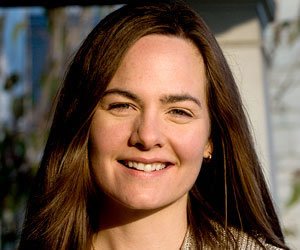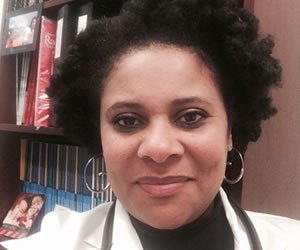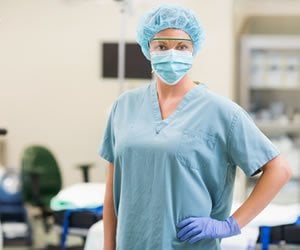Medical school is becoming routine to me now—which is great. I’ve finally found my rhythm after a few months and feel comfortable with my learning style and studying methods. And it keeps me busy enough during the workweek. I try to accomplish most of my studying during the week so that I have the weekends to not study and actually have a life. But here’s the thing: my study habits don’t necessarily line up with those of my peers, which can leave me with some long weekends. Instead of wondering if am covering all of my bases (or if I’m forgetting to do this reading or that reading), I take a break. I can’t possibly study all the time, so I’m forced to have confidence in myself to do well. I understand that I sound quite crazy complaining about having free time, because who–especially a medical student–has ever done that?
Medical
Learn about medicine and how to become a physician in our articles for pre-medical students (including the MCAT), medical students, resident physicians, and practicing physicians.
The Medical School Interview: They Aren’t All The Same!
“What kind of interview will it be?”
This is not a question applicants ever asked 10 or 15 years ago but often do now. Every year, more medical schools now conduct Multiple Mini Interviews (MMI) while most still conduct “traditional” one-on-one interviews. A few medical schools also conduct group interviews with either groups of students who are interviewed together or several faculty who interview one student together. Therefore, when thinking about the medical school interview process, it’s important to be aware of what you might encounter on the interview trail.
How To Get Great Letters of Evaluation for Medical School
Letters of evaluation are a vital component of the medical school application process. Since many applicants have high levels of academic achievement and robust extracurricular experiences, it is important for students to obtain outstanding letters of evaluation. Below are several key points to remember when requesting such letters:
Q&A with Physician Writer Christine Montross
Dr. Christine Montross is Assistant Professor of Psychiatry and Human Behavior and the Director of Counseling Resources at the Warren Alpert Medical School of Brown University. She works as a staff psychiatrist at Butler Hospital in Providence, Rhode Island. Before attending medical school at Brown, Dr. Montross graduated from the University of Michigan with a Master of Fine Arts in poetry, and undergraduate degrees in French and Natural Resources.
Five Things to Consider in Choosing an MCAT Prep Course
With the Medical College Admissions Test (MCAT) undergoing major changes in 2015, the first revamp in over two decades, aspiring medical students are faced with new uncertainty in how to prepare for the crucially important exam. Many students are turning to dedicated MCAT prep courses to supplement their self-directed studies, only to be stymied by a market crowded with many alternatives. Here are some important questions to ask when selecting an MCAT prep course.
Chronicles of a Med Student: Time for a Reality Check
I was about to burst with excitement the minute I started medical school. I’m pretty sure I was actually giddy: like so many other pre-meds, I had dreamt of the day when I would finally put my pretty white coat on and actually start learning about things I cared about (that’s not to say everything I’d learned previously was useless—it absolutely wasn’t, but it wasn’t what I wanted). It felt like the longest road just to get to this point and I couldn’t even begin to fathom what was to come. It really was like the journey had ended…instead of just begun.
3 Ways to Prepare for the USMLE Step 1 Exam
The USMLE Step 1 exam is arguably one of the most important tests in a medical student’s career. While a student’s score on Step 1 is taken into consideration amongst many other factors, the score still plays a major role in determining a student’s competitiveness for residency in certain specialties. After all, once a student has applied to a specialty, his or her Step 1 score will partially determine which types of institutions he or she will have the opportunity to interview at. Below are three general strategies to help you prepare for the USMLE Step 1 exam:
Book Excerpt From 11 out of 10: "Prince Albert"
I used to be an Emergency Medical Technician at a very busy Emergency Department. Given that about 70% of all patients that walk in the front door just need little more than a bandage, my job was to treat those low acuity patient under the supervision of a NP/PA or MD/DO. Simple things like removing sutures, bandaging wounds, and assisting the providers in more complicated or invasive procedures. I have three kids that liked to stick stuff where it didn’t belong when they were toddlers and I became quite adept digging things out of ears and noses. Naturally, I became the go-to person for removing foreign bodies and resolving foreign body entrapments in our Emergency Department. I have extracted a ton of weird stuff from ears and noses– things that I didn’t think were possible to get in those spaces to begin with. I had a very high success rate and was generally trusted to be able to handle almost any situation that presented itself.
Attend a Pre-Med Fair – Connect with Admissions Officers and the AAMC
Why attend a pre-med recruitment fair? Pre-med recruitment fairs are great opportunities to learn about applying to medical school, admissions requirements, and resources all in one place! You’ll be able to engage with medical school admissions officers and representatives in person to learn about specific opportunities at their schools. You will find a variety of medical schools, programs, and associations, like the AAMC (Association of American Medical Colleges), that have a wealth of resources to support you on your path to medical school.
How My MCAT Study Plan Helped Me Go From the 30th to 90th Percentile
Download the 2023 Edition of the Nymeria 100-day MCAT study plan – rebuilt with all … Read more
Blurred Lines: The Doctor-Patient Relationship-in-Training
Reposted from here with permission It is one thing to be a doctor and another to … Read more
Chronicles of a Med Student: We’re All In This Together
Walking into my first day of medical school was a little like walking into my first day of kindergarten (if my memory does not fail me). Everything was brand new: I was being exposed to a new way of learning in a new environment, where people had new expectations of me, and where I was going to start from square one and build up a new circle of friends. I had carried the same set of friends in grade school and though I thought initially that college would’ve felt like this on my first day, it didn’t. I had a lot of friends from high school go to the same college as me, so it just felt like we were hanging out in a new place. And again college is very different from medical school in more ways than I can put into a coherent list. Starting medical school was unlike any other start in my life (besides kindergarten, of course). What if I had forgotten how to make new friends from scratch?!
Choosing a Specialty: The Generalist vs. the Early-Committer
Many students arrive at medical school with a bias that their liberal arts education has instilled, namely, that they should survey everything before deciding on their specialty. Before medical school, students matriculate at colleges that pride themselves on providing a diverse exposure to a variety of subjects: Computer science majors experience the canon of Great Literature before pursuing a life of code, and English majors can take “Physics for Poets.”
For a generalist student sampling from the buffet of medicine, it can be jarring to sit in lecture next to a classmate who declares on the first day of school that she intends to become an orthopedist. These early-committers appear to have whittled down their choices from day one. They magically become apprentices to a faculty member in their chosen specialty by the first quarter, have a publication by their first year, and seem to possess an intuitive roadmap for applying to residency that the generalist cannot read.
20 Questions : Karen M. Winkfield, MD, PhD, Radiation Oncology
Karen M. Winkfield, MD, PhD, is a radiation oncologist with Massachusetts General Hospital, and she divides her time among clinic research in health equity and hematologic malignancies, teaching as assistant professor of radiation oncology at Harvard Medical School, and a clinical practice treating patients with lymphoma, leukemia, myeloma, myelodysplastic syndrome and other blood cell dyscrasias, and breast and gynecologic malignancies.
Dr. Winkfield received her bachelor’s degree in biochemistry from Binghamton University (1997), and her PhD in pathology (2004) and MD (2005) from Duke University. She completed an internship in internal medicine at Duke and a residency in radiation oncology at Harvard. Dr. Winkfield co-founded and directs the Association of Black Radiation Oncologists, and she’s been published in numerous journals, including the Journal of Biological Chemistry, Journal of the National Medical Association, International Journal of Radiation Oncology – Biology – Physics, Oncology, Journal of the American Academy of Dermatology, and New England Journal of Medicine. She also currently chairs the Health Access and Training Subcommittee for the American Society For Radiation Oncology and is chair-elect of the Health Disparities Committee for the American Society of Clinical Oncology.
How to Make the Most of a Medical School Visit
Once you have been selected for an interview at a medical school, you will have the opportunity to visit the campus. Though your priority during this visit will naturally be to excel in your interview, it is also important that you gather key information from various individuals so that you can make an informed decision when deciding which medical school to ultimately attend. Below are three tips on how to make the most of a medical school visit:
The Risk Involved in Going to Medical School (and How You Can Subvert It)
Most people wouldn’t normally think of medical school as a risky investment. Sure, there are … Read more
6 Tips for Med School Interviews
The interview is one of the most important steps in the medical school application process. It’s your chance to get to know the medical school in person while demonstrating good communication skills, professionalism, maturity, and your passion for medicine.
Below are six tips to help you make a good impression:
The Med-Peds Residency: Big and Small, We Care for Them All
As third year medical students you’re rotating through your general specialties and you think you’re seeing familiar faces but in new places. Isn’t that your newborn nursery resident who assigned APGAR scores, now leading the code in the medical ICU? Some of you may have had similar déjà vu experiences but rest assured, your mind isn’t fooling you. At 79 programs across the USA and Puerto Rico, Combined Internal Medicine and Pediatric residents walk (briskly) through the halls of the hospital carrying both PALS and ACLS cards in our coat pockets. Our minds have been shaped to think broadly and decisively. We carry an air of calmness from our critical care rotations yet we know when to appropriately turn to our goofy side to connect with our patients. Through four years of versatile training, we are training to be the 21st century physician.
The Combined Internal Medicine-Pediatrics (commonly referred to as “Med-Peds”) is a four-year residency-training program that leads to dual board certification in Internal Medicine and Pediatrics. While there are many combined training programs offered in the US, the Med-Peds residency is by far the most ubiquitous and popular program available. During the four years of training, residents undergo a rigorous schedule of rotations ranging from adult and pediatric wards, MICU, PICU, NICU, CCU, Med-Peds clinic and specialty electives. By graduation, residents will have completed a total of 2 years of adult and 2 years of pediatric training. The frequency at which residents switch from one “side” to another changes depending on the individual residency program. The end product is the same: Individuals who are prepared to deal with acute, complex, chronic and preventive care for both adult and pediatric medical conditions. The broad training creates an endless list of career possibilities. We each carve out a niche that best fits the career interest we have in mind.
Fifty Shades of Care: Why Doctors Need to Pay More Attention to their Kinky Patients
Reposted from here with permission. On Valentine’s Day weekend last year I found myself at Paddles, the local … Read more
Five Ways to Make Your Audition Rotation in Anesthesia (or Other Specialty!) a Success
It is that time of year again. Medical school students across the country are preparing applications for residency and pursuing audition rotations at residencies they are hoping to woo into an interview and hopefully to match into their program.
Any audition rotation is a challenge. This is especially true for the anesthesia audition rotation. For medical school students who look great on paper, the audition rotation can either confirm they are a great candidate or confirm the program should not interview/rank them. For medical school students who do not have a stellar record, the audition rotation can open up doors.


















